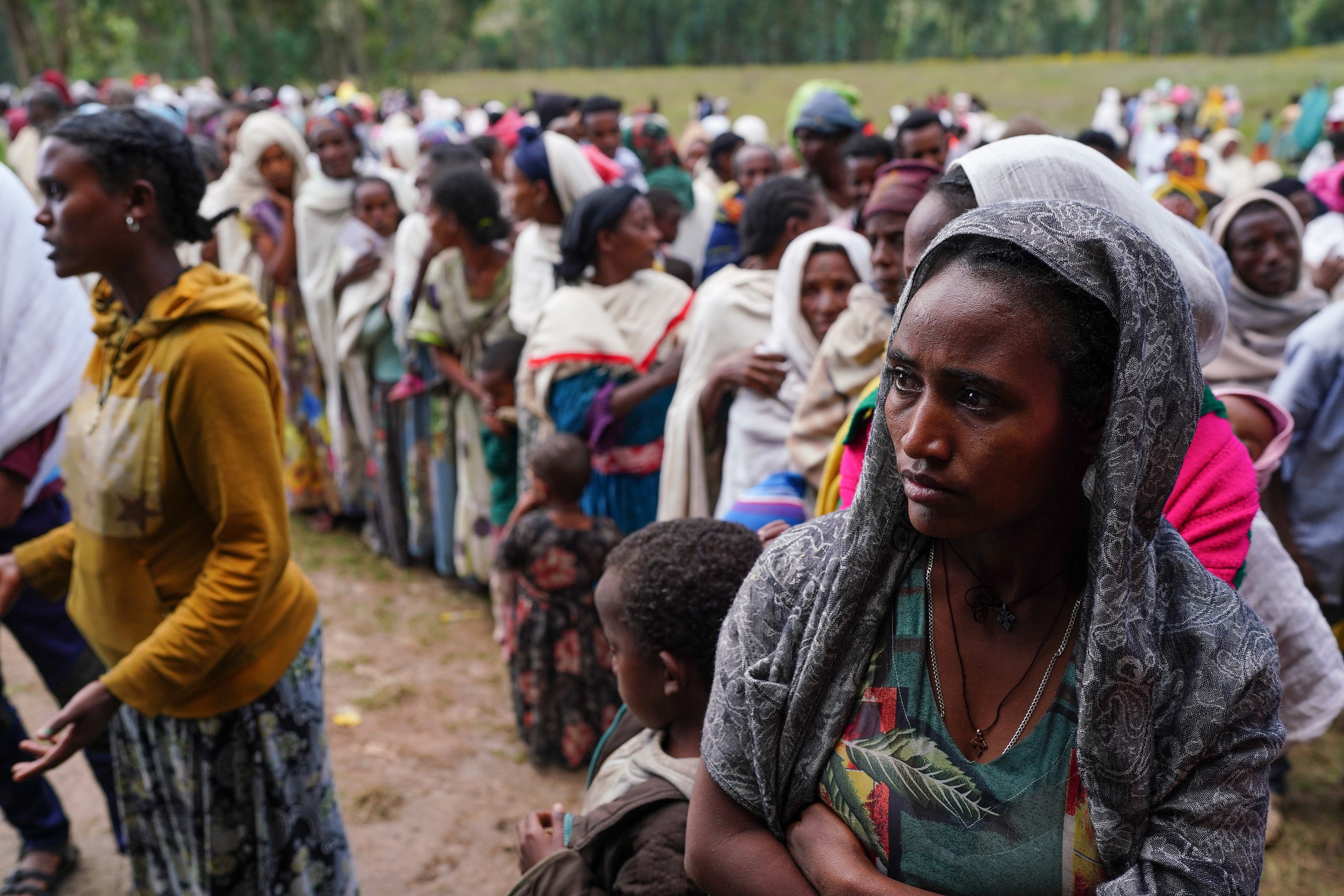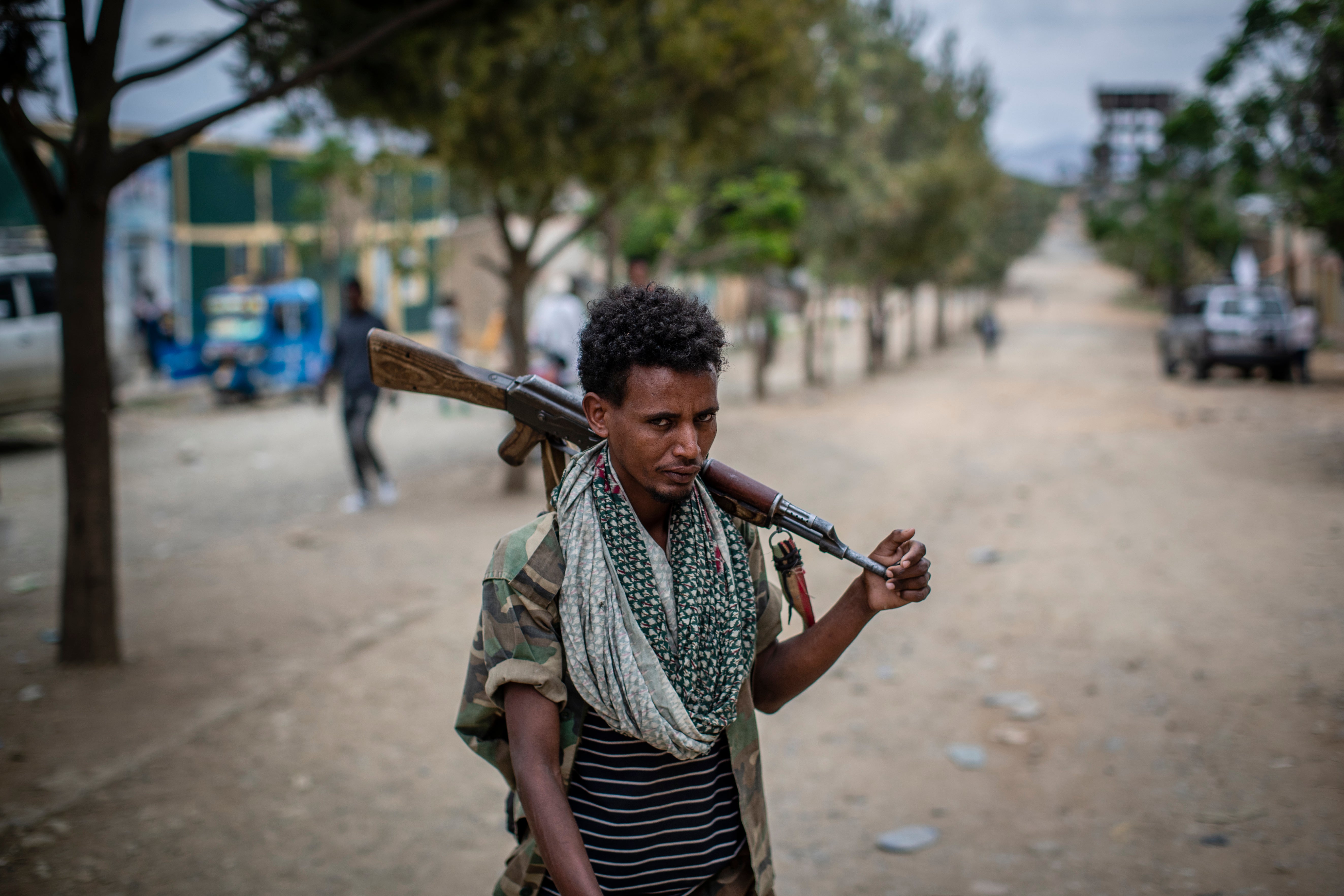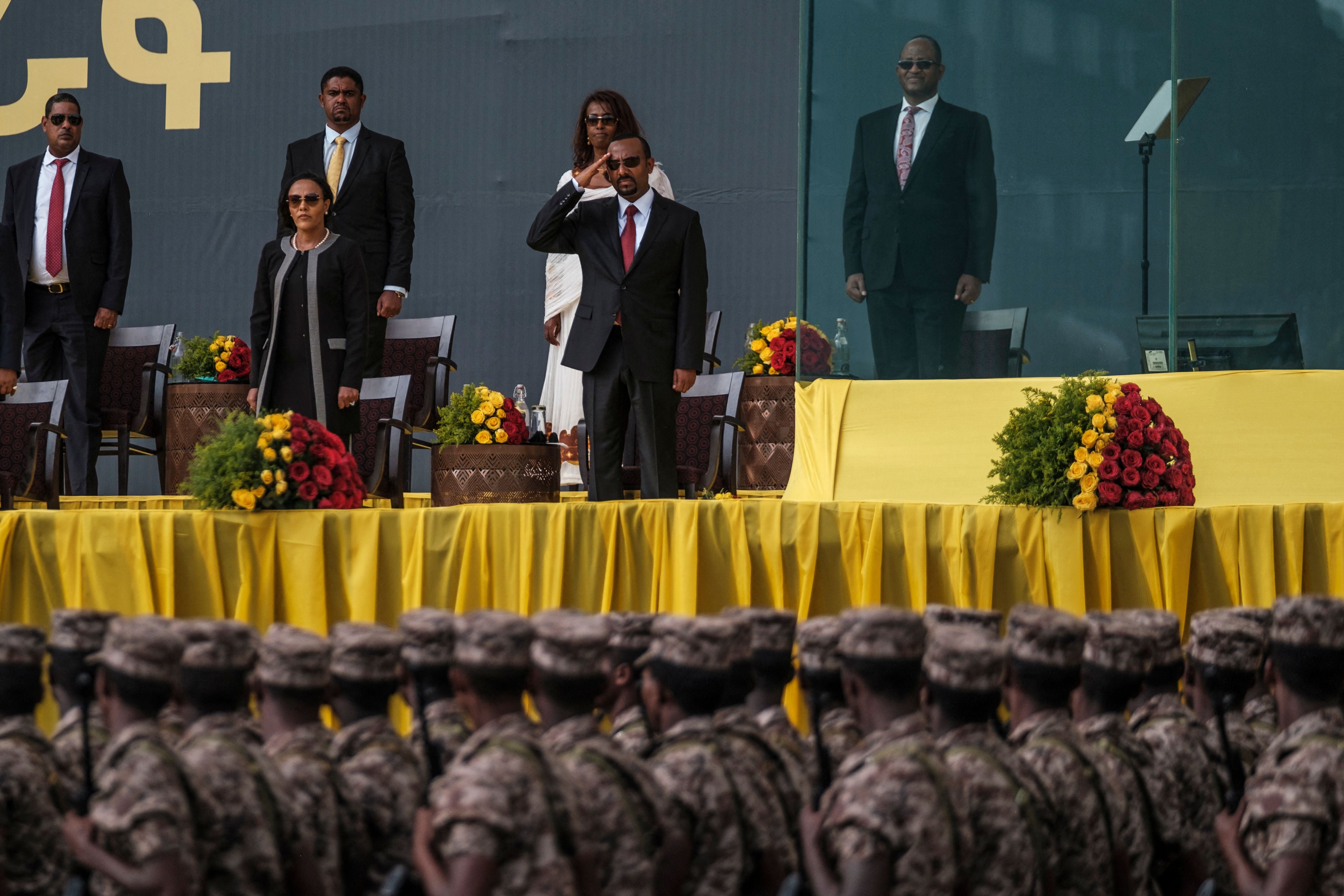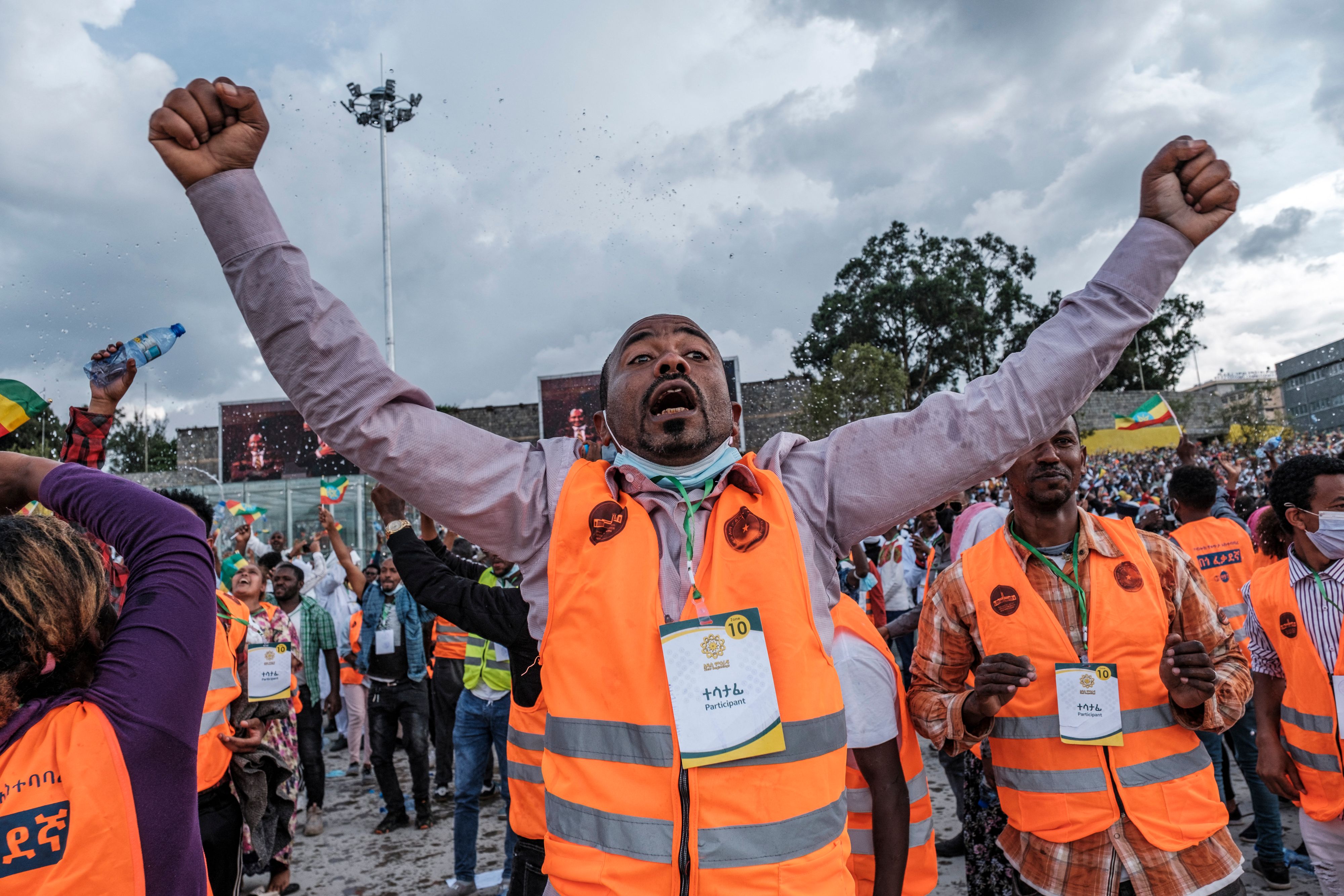Fears for humanitarian crisis engulfing Tigray as Abiy Ahmed launches make or break war
A ‘final offensive’ launched by Addis Ababa in Tigray has raised fears over its impact on the general population, writes Ahmed Aboudouh


Your support helps us to tell the story
From reproductive rights to climate change to Big Tech, The Independent is on the ground when the story is developing. Whether it's investigating the financials of Elon Musk's pro-Trump PAC or producing our latest documentary, 'The A Word', which shines a light on the American women fighting for reproductive rights, we know how important it is to parse out the facts from the messaging.
At such a critical moment in US history, we need reporters on the ground. Your donation allows us to keep sending journalists to speak to both sides of the story.
The Independent is trusted by Americans across the entire political spectrum. And unlike many other quality news outlets, we choose not to lock Americans out of our reporting and analysis with paywalls. We believe quality journalism should be available to everyone, paid for by those who can afford it.
Your support makes all the difference.A broken human skull, pieces of human bones and blood-stained clothes scattered around what looked like a burned mass graveyard, where people were searching a number of identity papers.
These were the gruesome scenes shown in a video obtained by CNN in June, revealing massacres allegedly carried out by Ethiopian soldiers against locals in the northern province of Tigray. Days before, a unilateral ceasefire was announced by Addis Ababa after months-long fighting alongside forces from the Amhara neighbouring region and the Eritrean army in a bid to topple the Tigray People’s Liberation Front (TPLF).
Fears are mounting those horrific atrocities could now happen again. The Ethiopian forces have launched what supporters of the government of Prime Minister Abiy Ahmed dubbed the “final offensive.” This week, rebels said the government had launched a military push “on all fronts” to regain parts of Tigray and Amhara taken by the TPLF forces in June.
The war dates back to last November, when the government declared victory after seizing the regional capital Mekelle. But the TPLF kept fighting and managed to retake Mekelle and most of Tigray after government soldiers withdrew at the end of June.
Reports said this week coordinated attacks by the government forces and its allies took place in the Amhara and Afar regions close to Tigray’s southern border. The ground operations, the reports confirmed, are being backed by drones and airstrikes.
“An offensive by the Ethiopian military, together with a vast newly recruited army drawn from the country’s ethnic militia, has been launched,” Martin Plaut, a fellow at the Institute of Commonwealth Studies, said.

Since the ceasefire, Ahmed’s war calculations were ultimately hampered by the lack of a political mandate, the heavy rain that swamped the north this year and severe shortages in manpower and weapons.
But in July, the Nobel Prize Laureate won the election with a landslide. Perhaps the tremendous political victory, Ahmed felt, was a nod from the Ethiopians to finish the arduous, protracting war in Tigray. And this, of course, means nothing less than total victory.
“Abiy Ahmed’s aides now feel the wind beneath their wings to get the job done,” one source in the region told The Independent.
Addis Ababa has designated the TPLF as a terrorist group, and government-backed media has been engaged in a campaign aimed at demonising the region’s ruling party, accusing it of trying to fragment the country.
In the past months, the campaign proved helpful to fire up nationalism among ordinary Ethiopians, bolster Ahmed’s political position and boost the vigorous recruitment of young men who “showed their patriotism” to join the fight.
This happens with a clear objective: “the people of Tigray [should] forever be separated from the terrorist group]”, Ahmed previously said, referring to the TPLF.
The Tigrayan forces have been pushing for reopening supply lines and ending the government forces’ blockade on the region by trying to seize strategic areas. This includes the North Wollo zone, Lalibela and Gondar, a strategic city on the crossroads to Sudan and Eritrea.
“The government’s priority will be to remove Tigrayan forces from neighbouring regions, which they pushed into following the withdrawal of federal forces from much of Tigray in late June and weaken their capacity to secure control of strategic supply lines,” Ahmed Soliman, a research fellow at Chatham House, said.
But to reach this objective, western diplomats say, Ahmed would lay down a “smokescreen” around the humanitarian situation to gain time without being under pressure from abroad.
This month, Addis Ababa expelled seven UN humanitarian officials and accused them of “meddling” in the conflict. The dramatic move could be intended as a cover-up of widely reported brutality by its forces and tighten the screws on the humanitarian operations as part of its preparations for the battle.
Since the war started last year, around two million people in Tigray have been displaced while warnings, including by the UN, have been centerd on a famine gripping over 400,000 people.
There are growing fears by the UN of a return to widespread famine in the region
“With malnutrition and starvation deaths rising, and restricted humanitarian access leading to an acute shortage of basic commodities and medicines, there are growing fears by the UN of a return to widespread famine in the region,” Mr Soliman said.
Witnesses have often blamed the Ethiopian soldiers and their Eritrean allies for using gang rape, mass expulsion and starvation as a weapon against the six million civilians bearing the brunt of the war in Tigray.
Ethiopian authorities don’t deny massacres carried out by their forces, which Amnesty International called “war crimes” that would amount to crimes against humanity.
In a statement sent to The Independent, a spokesperson for the Ethiopian embassy in London said Addis Ababa would not tolerate the carnage. “The Government has taken measures to investigate and hold accountable perpetrators of crimes committed within the context of the conflict, through the Ethiopian Human Rights Commission, as well as in collaboration with the UN,” the statement said.
“No person, including serving soldiers, is above the law,” it added.

But observers insist several crimes, such as mass starvation and blocking access to humanitarian aid, are not isolated incidents committed by individuals. Instead, they claim they are techniques deliberately deployed by the government as part of a broader strategy to break the Tigranian resistance.
“Abiy has two objectives in Tigray. The first is to starve the population either into subjugation or out of existence. The second is to do that without attracting the global opprobrium that would arise from deliberately causing a massive famine taking millions of lives,” said Mark Lowcock, former UN relief chief who is currently a distinguished non-resident fellow with the Center for Global Development.
The dire humanitarian situation has been the centre of a parallel war of narratives where the two sides brand each other as war criminals.
Last month, the government accused the TPLF of killing and burying 120 civilians around the town of Dabat, near Gondar in the Amhara region.
In addition to the Tigryans, tens of thousands of people have also been displaced in neighbouring Amhara and Afar regions as a result of the ongoing bloodshed.
Ethiopian officials remain defiant. The London embassy spokesperson pledged to The Independent that the government would do whatever it takes to accelerate “the process” to end the TPLF hold over Tigray, stop its “atrocities”, and get aid to people in the region and Amhara and Afar.
“The Government of Ethiopia remains committed to employing everything at its disposal to expedite the process and let the necessary aid reach the people of Tigray.”
Despite the TPLF’s continued aggression, which is exacerbating the humanitarian situation, the international community has remained silent
“Despite the TPLF’s continued aggression, which is exacerbating the humanitarian situation, the international community has remained silent. We, therefore, call upon the international community to stand with the people and government of Ethiopia in condemning the TPLF’s atrocities and encroachment into other regions,” it added.
On the other side, the TPLF insist Ahmed has to go, saying he has initiated a “genocidal war” against their region.
“The Tigrayans have their backs to the wall. They are resisting the offensive while attempting to find a way of breaking out of the blockade around Tigray. This would mean carving a path to Sudan or Djibouti,” Mr Plaut said.
Western diplomats describe the pressure on Tigray as “unbearable.” The TPLF seems to have run out of options other than keeping up the fight, a strategy they previously proved to have mastered against a combined assault by Addis Ababa and Asmara.
They vowed to hold their ground, but it is not yet clear for how long.
Experts say the best strategy for the Tigrayan ruling party is to seek a negotiated solution to offset the massive government barrage.
Reports have said the Tigryan leaders have sought to discover the possibility of dialogue with the government over a more effective ceasefire.
But perhaps such an outcome can prove elusive given that the massive attack is at its early stages and that Ethiopian MP’s legitimacy as an able, strong leader who could maintain the country’s territorial integrity is at stake.

Ahmed’s government also seems to have run out of options. “The irony is that Abiy Ahmed’s game plan cannot work. If he tries and fails to destroy Tigray, he will be destroyed himself. If he succeeds, he will never survive the backlash that will follow,” Mr Lowcock noted.
“His best strategy is to try and find a way to start a dialogue with the Tigryans and get the hardliners within his ranks to join it,” he added.
There are, however, no signs Ahmed would consider the negotiations option soon.
International pressure on Addis Ababa to end the fighting has also built up. Neighbouring countries fear the crisis would turn into an all-out war that would lead to the disintegration of Ethiopia. Reports said diplomatic efforts by the African Union were underway behind the scenes to encourage talks.
The Biden administration also recently said it is conducting an interagency review as it considers targets for possible sanctions against the Ethiopian and Tigryan leaders.
Breaking the TPLF’s and re-capturing the whole of Tigray “would allow Ahmed’s government to be in a stronger position to resist American and European pressure to open negotiations with the Tigrayan regional government,” Mr Plaut stated.
Join our commenting forum
Join thought-provoking conversations, follow other Independent readers and see their replies
Comments